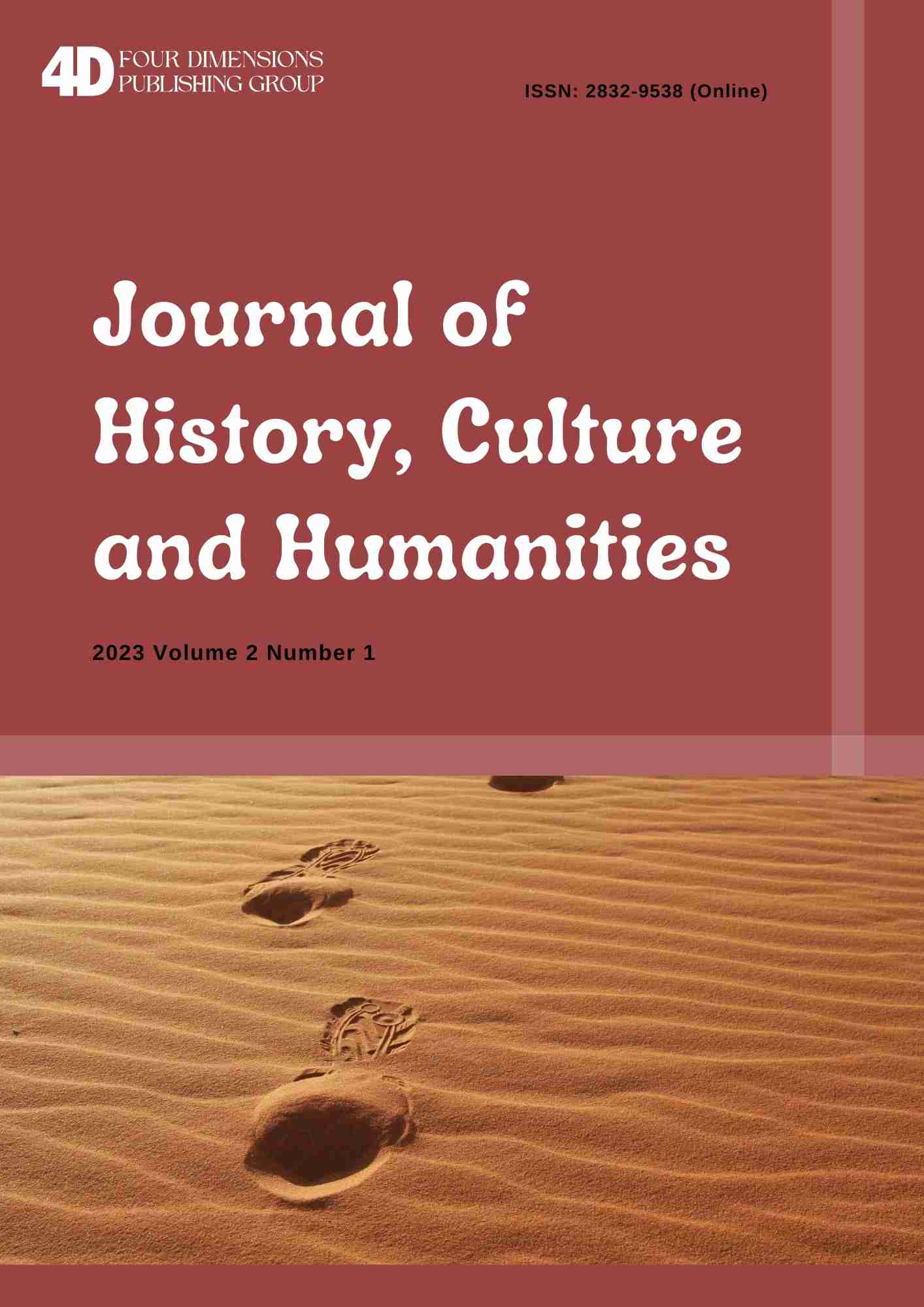
Journal of History, Culture and HumanitiesOpen Access
Journal of History, Culture and Humanities is an international peer-reviewed journal that publishes original and high-quality research papers in all related areas. All papers published will be open access to all readers. To build a platform for scientific research and academic exchange for scholars, focusing on the development and research, introducing worldwide research, theory and practice, and promoting international exchanges.
ISSN: N/A (Print)
Frequency: Monthly
ISSN: 2832-9538 (Online)
Website: https://doi.org/10.55571/jhch
Email:journal@4dpublishinggroup.com /jhch@4dpublishinggroup.com
Indexing and Abstracting: Google Scholar; CrossRef; ResearchBib; WorldCat; CiteFactor
Email:journal@4dpublishinggroup.com /jhch@4dpublishinggroup.com
Indexing and Abstracting: Google Scholar; CrossRef; ResearchBib; WorldCat; CiteFactor
The Impact of Music Education on Social Skills and Teamwork in Young Children
DOI:https://doi.org/10.55571/jhch.2024025
Authors:Xiaolong Li
Affiliation:Beijing Normal University, Beijing, China
Information: Received: July 15, 2024 / Accepted: July 25, 2024 / Published: August 25, 2024
Authors:Xiaolong Li
Affiliation:Beijing Normal University, Beijing, China
Information: Received: July 15, 2024 / Accepted: July 25, 2024 / Published: August 25, 2024
Abstract:Music education plays a crucial role in the holistic development of young children, particularly in enhancing social skills and fostering teamwork. This paper explores the various ways in which music education contributes to social interaction, cooperation, and communication among children. It reviews current literature and examines case studies that highlight the significance of music as a collaborative activity, demonstrating how engaging in musical pursuits not only enriches children's artistic capabilities but also serves as a foundation for developing interpersonal relationships. Through shared experiences in music-making, children learn valuable social skills such as empathy, active listening, and conflict resolution, all of which are essential for effective teamwork. Additionally, this paper discusses practical applications for educators, emphasizing the need for inclusive and collaborative approaches in music curricula. The implications for curriculum design in primary education are also considered, suggesting that incorporating music education can create a supportive learning environment that nurtures both individual expression and group cohesion. Ultimately, the findings underscore the importance of music education as a vital component in fostering the social and emotional development of young children, preparing them for successful interactions both in and out of the classroom.
Keywords:Music Education, Social Skills, Teamwork, Young Children, Primary Education
Cite This Article:Li X. The Impact of Music Education on Social Skills and Teamwork in Young Children. Journal of History, Culture and Humanities. 2024, 3(4): 71-80. https://doi.org/10.55571/jhch.2024025
Keywords:Music Education, Social Skills, Teamwork, Young Children, Primary Education
Cite This Article:Li X. The Impact of Music Education on Social Skills and Teamwork in Young Children. Journal of History, Culture and Humanities. 2024, 3(4): 71-80. https://doi.org/10.55571/jhch.2024025
